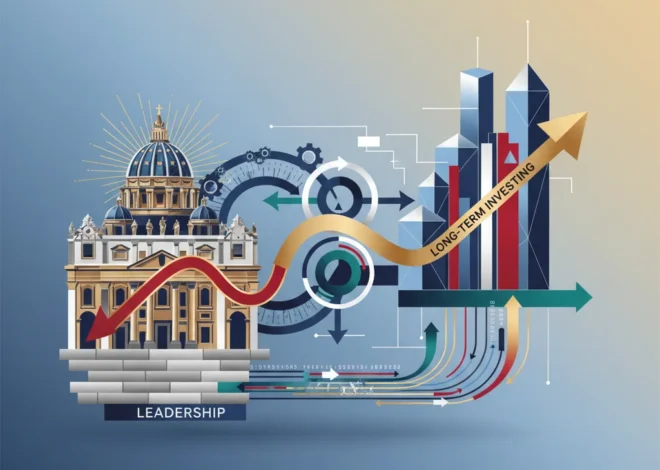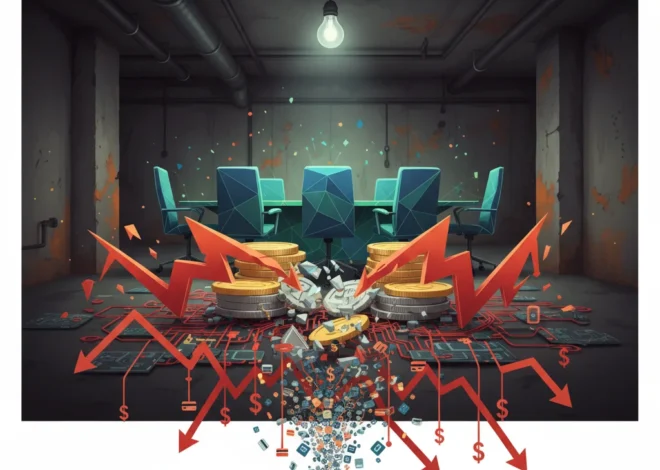
The BBC’s Billion-Pound Blind Spot: Why Its Next Leader Must Be a Finance Pro
The role of the Director-General of the BBC has long been one of the most prestigious, and perilous, in public life. It demands a unique blend of creative vision, journalistic integrity, and political savvy. Yet, as the institution navigates a landscape of unprecedented disruption, a single, brief letter to the Financial Times has sparked a crucial debate: is the traditional job specification dangerously obsolete? Jeremy Wagener, in his incisive letter, argues that the time has come to change the job spec, suggesting the role has become too vast for any single individual, particularly one without a deep background in corporate finance and management.
This isn’t just an internal governance issue; it’s a question with profound implications for the UK’s creative economy, the future of public service broadcasting, and the principles of sound financial stewardship. The modern BBC is a complex hybrid: a cherished cultural institution funded by a mandatory public fee, and simultaneously, a global commercial juggernaut competing with the likes of Netflix and Disney. To pretend that one person, typically from an editorial background, can effectively pilot both of these entities is a high-stakes gamble. It’s time to analyze this structural flaw and explore a model better suited for the 21st-century media market—one that borrows from the best practices of the corporate world of finance and investing.
A Tale of Two Corporations: The BBC’s Dual Identity Crisis
To understand the leadership challenge, one must first grasp the BBC’s bifurcated nature. On one hand, there is the Public Service Broadcasting arm, which operates under a Royal Charter with a mission to “inform, educate and entertain.” This is the BBC of the evening news, of groundbreaking documentaries, and of CBeebies, funded by the £159 annual licence fee. Its success is measured not in profit, but in public value, reach, and quality.
On the other hand, there is BBC Studios, the corporation’s wholly-owned commercial subsidiary. This is a global production and distribution powerhouse, a profit-driven entity that develops, produces, and sells British content worldwide. It’s the engine behind global hits like Doctor Who, Strictly Come Dancing (licensed as Dancing with the Stars), and David Attenborough’s natural history epics. And it is a financial giant. In the 2022/23 financial year, BBC Studios posted a record turnover of £2.09 billion, with profits soaring by 25% to £240 million, according to its own annual report. This isn’t a cottage industry; it’s a FTSE 100-scale operation.
The Director-General is expected to be the master of both these worlds. They must defend the principles of impartial public service broadcasting to politicians while simultaneously overseeing a commercial strategy that involves complex international co-production deals, content rights trading, and competition in the cut-throat streaming market. This creates an inherent conflict: the skills that make a brilliant editor-in-chief are rarely the same skills that make a successful global CEO.
Decoding Bitcoin's Sideways Shuffle: Why Price Compression Could Signal a Major Breakout
The Flaw in the Blueprint: Why Editorial Genius Isn’t Enough
Historically, the path to the Director-General’s office has been through the newsroom or the production gallery. This tradition is rooted in the belief that the BBC’s soul is its content, and its leader must be its ultimate editorial guardian. While noble, this perspective overlooks the sheer scale and complexity of the modern organization. The BBC employs over 20,000 people and has an annual budget exceeding £5 billion.
Managing an entity of this size requires more than just good editorial judgment. It requires a deep understanding of corporate finance, operational logistics, risk management, and strategic investing. When crises erupt at the BBC, they often manifest as editorial scandals, but their roots can frequently be traced back to managerial or structural failures. A leader without a firm grasp of large-scale organizational management is constantly on the back foot, reacting to problems rather than preempting them.
The current model forces the Director-General into an impossible position, demanding they be a master of journalism, a creative visionary, a shrewd political operator, a union negotiator, and the de facto CEO of a multi-billion-pound global enterprise. No single person can excel in all these domains. The result is a structure that is brittle, prone to crisis, and ill-equipped to make the tough, long-term financial decisions necessary for survival.
A Radical Solution: Splitting the Crown
The proposal put forth by Jeremy Wagener, and one that merits serious consideration, is a dual-leadership structure. This would involve splitting the monolithic Director-General role into two distinct, but collaborative, positions: an Editor-in-Chief and a Chief Executive Officer.
This model allows for specialized expertise at the helm, ensuring that both the creative heart and the operational backbone of the organization receive the world-class leadership they require. It creates clearer lines of accountability and allows the leadership team to focus on what they do best. Here is a potential breakdown of those responsibilities:
| Role: Editor-in-Chief (EIC) | Role: Chief Executive Officer (CEO) |
|---|---|
| Guardian of the BBC’s public service mission as defined by its Royal Charter. | Overall responsibility for the financial health and operational efficiency of the entire BBC group. |
| Sets the overall creative and editorial strategy for all public service content. | Leads the global commercial strategy for BBC Studios, focusing on growth and profitability. |
| Final authority on journalistic standards, ethics, and impartiality. | Manages relationships with the government, regulators, and key financial stakeholders. |
| Leads and inspires the creative and journalistic talent within the organization. | Oversees major capital projects, technology infrastructure, and strategic investing in new ventures. |
| Acts as the public face for content-related matters and defends the BBC’s editorial independence. | Drives the adoption of new financial technology (fintech) to optimize operations and revenue streams. |
This structure isn’t about demoting the creative side; it’s about empowering it. By freeing the Editor-in-Chief from the immense burden of corporate management, it allows them to focus entirely on producing outstanding content. Meanwhile, a dedicated CEO can ensure the organization is run efficiently, sustainably, and strategically, securing its future in a turbulent market.
Lessons from the Corporate Playbook
While a dual-leadership model might seem radical for the BBC, it has precedents in the corporate world. The separation of the Chairman and CEO roles in publicly traded companies on the stock market is standard governance, designed to prevent the concentration of too much power in one individual. More directly, co-CEO structures have been used by major companies like Netflix, SAP, and Oracle to leverage complementary skill sets at the top.
As a Harvard Business Review article on the topic notes, this model can be highly effective when the roles are clearly defined and the leaders share a unified vision. It states that co-CEOs can “provide broader and deeper coverage of key issues” and “make better decisions.” (source) For the BBC, this could mean a leadership team that is equally adept at navigating the nuances of a sensitive news story and the complexities of a multi-year content licensing deal. This approach de-risks the entire organization, making it more resilient and better prepared for future shocks to the global economy.
Solving the Market's Crossword: A Strategic Guide to Today's Financial Puzzles
Future-Proofing the BBC with Financial and Technological Acumen
Looking ahead, the challenges facing the BBC are as much about technology and finance as they are about content. A business-focused CEO would be better positioned to tackle these head-on. How can the BBC leverage financial technology to create more efficient payment systems or manage its vast global revenues? How can it use data analytics, a core component of modern banking and finance, to better understand its audience and optimize its content investments?
A forward-thinking leader might even explore emerging technologies like blockchain for transparently managing intellectual property rights and royalty distribution on a global scale—a notoriously complex area of the media business. They would be tasked with answering the billion-pound question of the BBC’s long-term funding, exploring new models beyond the traditional licence fee with the financial rigour they demand.
These are not questions for a journalist or a program-maker. They are questions for a top-tier business strategist with a deep understanding of global markets, technological disruption, and corporate economics.
Conclusion: A Necessary Evolution
The BBC is a national treasure, but it is not a museum piece. To survive and thrive, it must be willing to evolve its structures to meet the realities of the modern world. The Director-General role, in its current form, is an anachronism—a relic from a time when the BBC was a simpler, smaller, and solely UK-focused entity. Today, it is a global player in a ruthless market, and it needs a leadership structure to match.
Adopting a dual-leadership model would be a bold and decisive step. It would signal that the BBC understands its dual identity and is serious about excelling in both its public service mission and its commercial ambitions. It is no longer enough for the leader to be a great editor; they must be supported by a great CEO. The future of this vital institution may very well depend on it.


